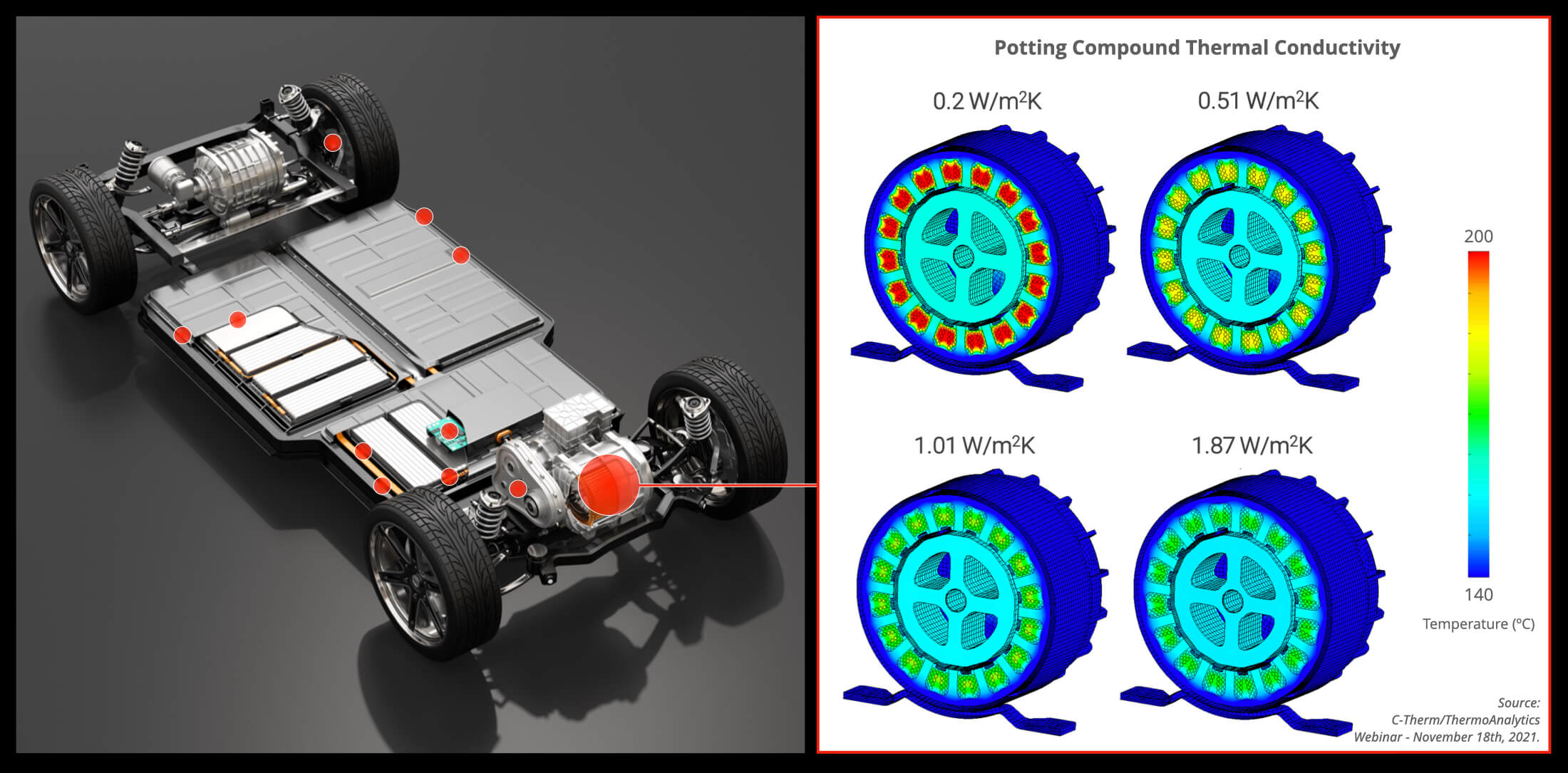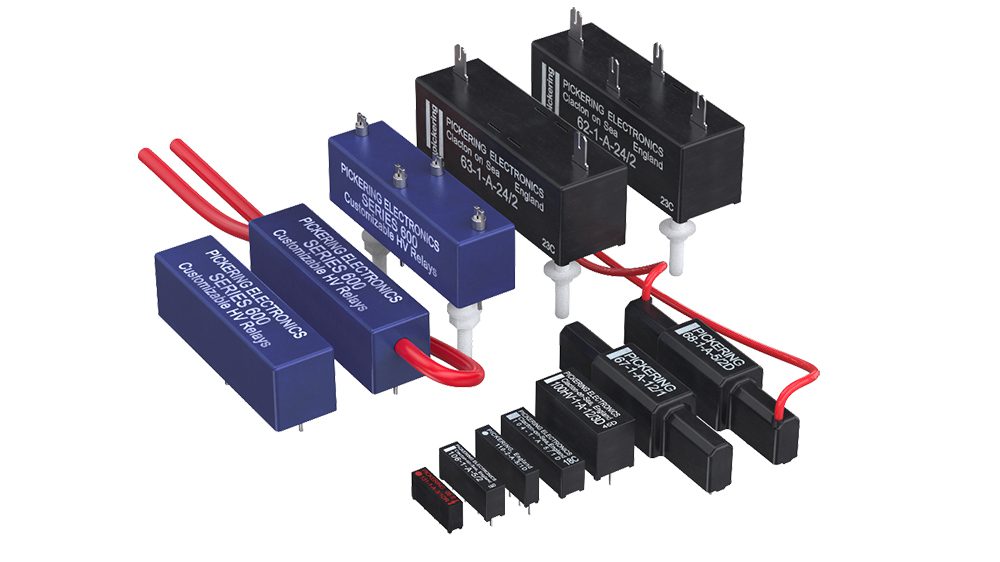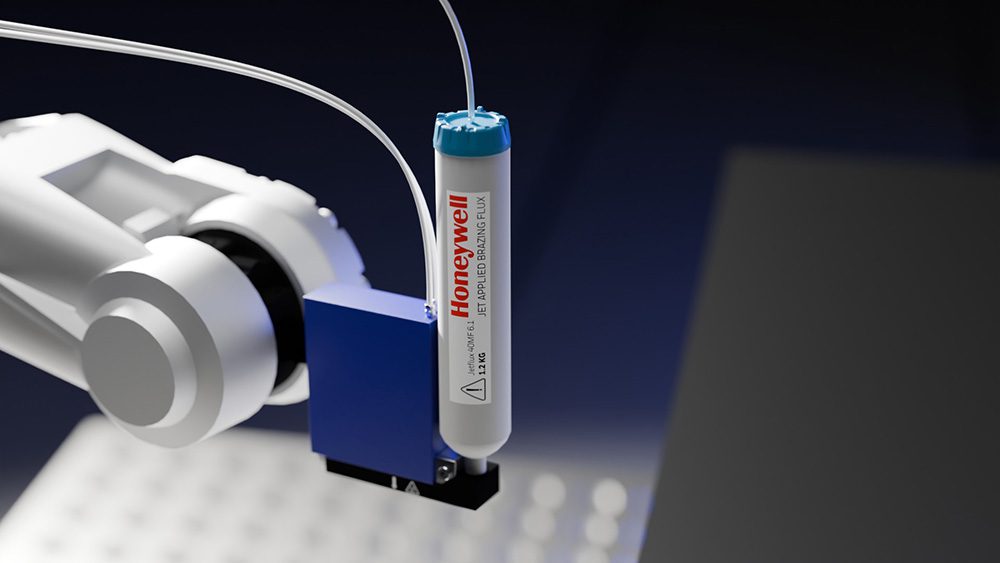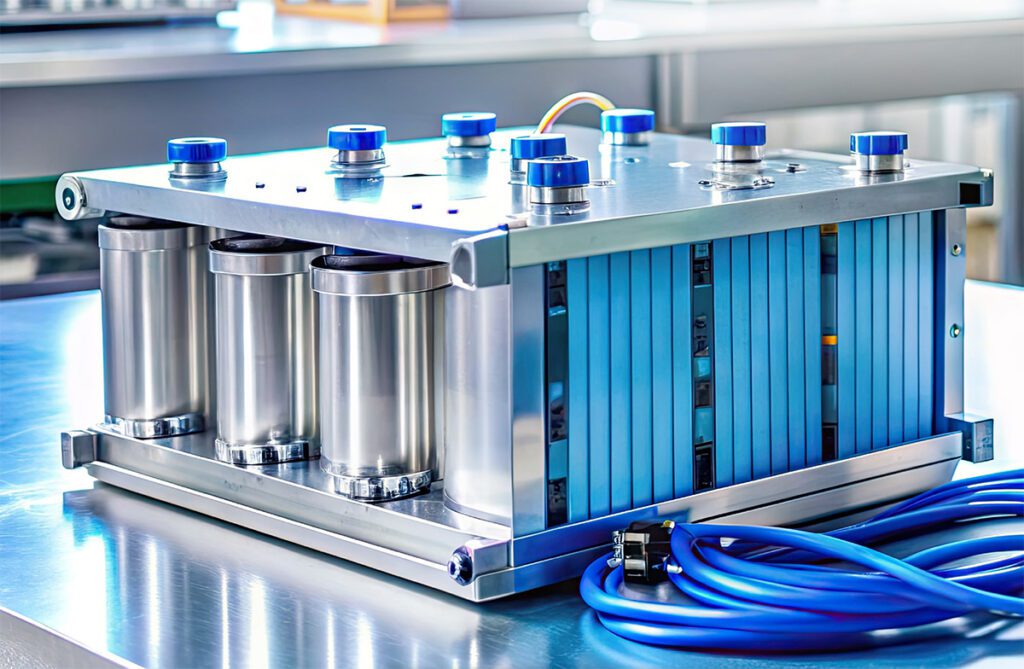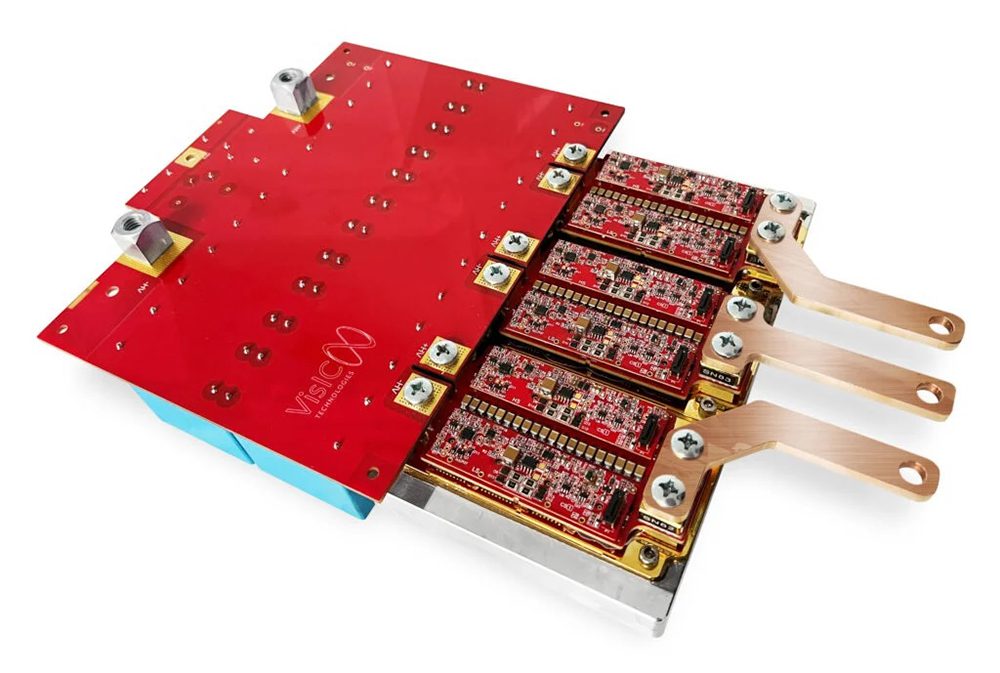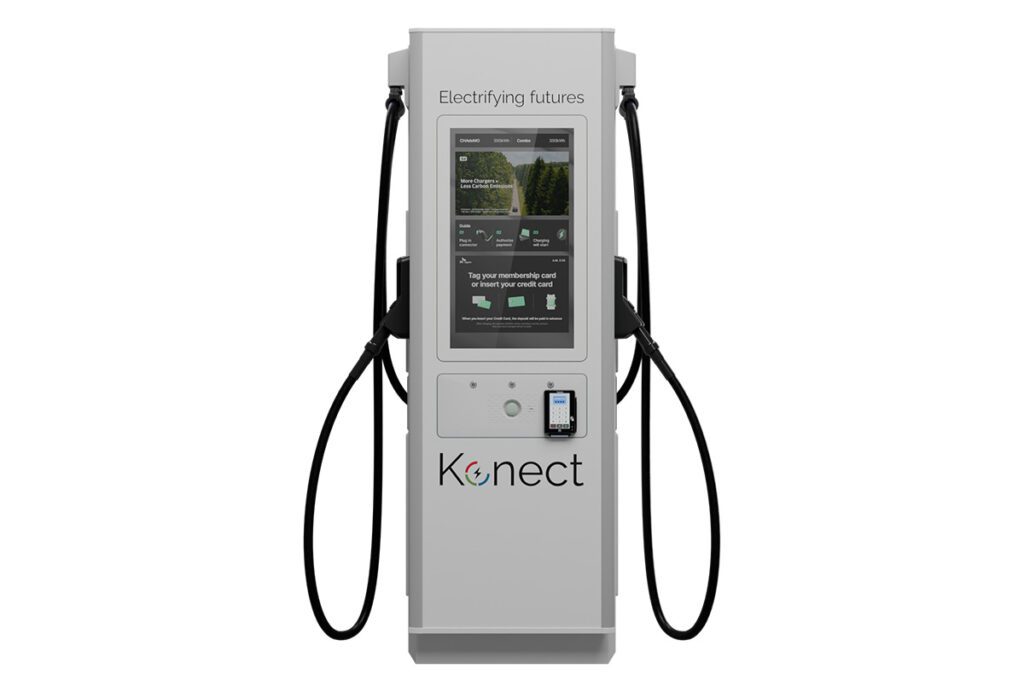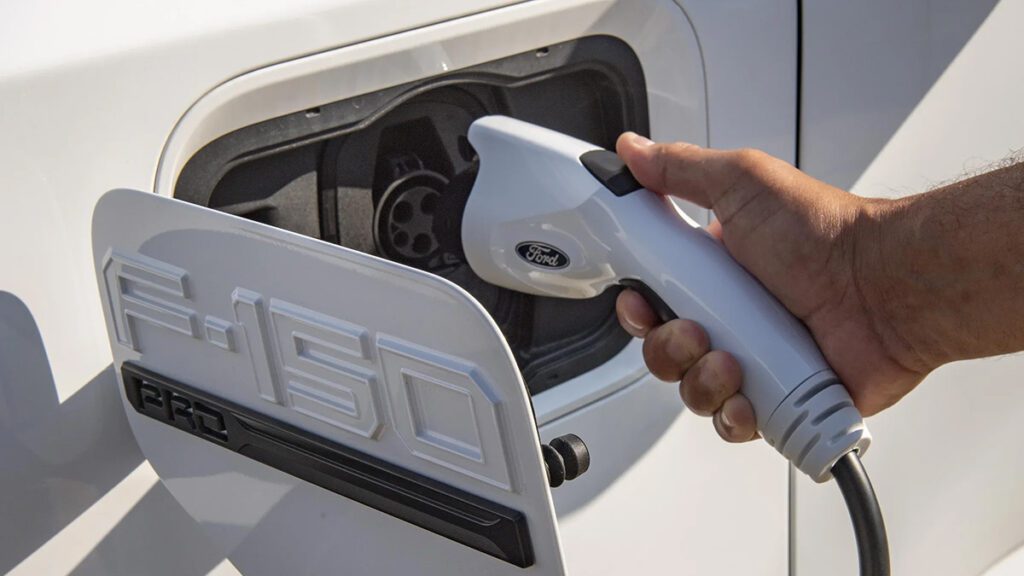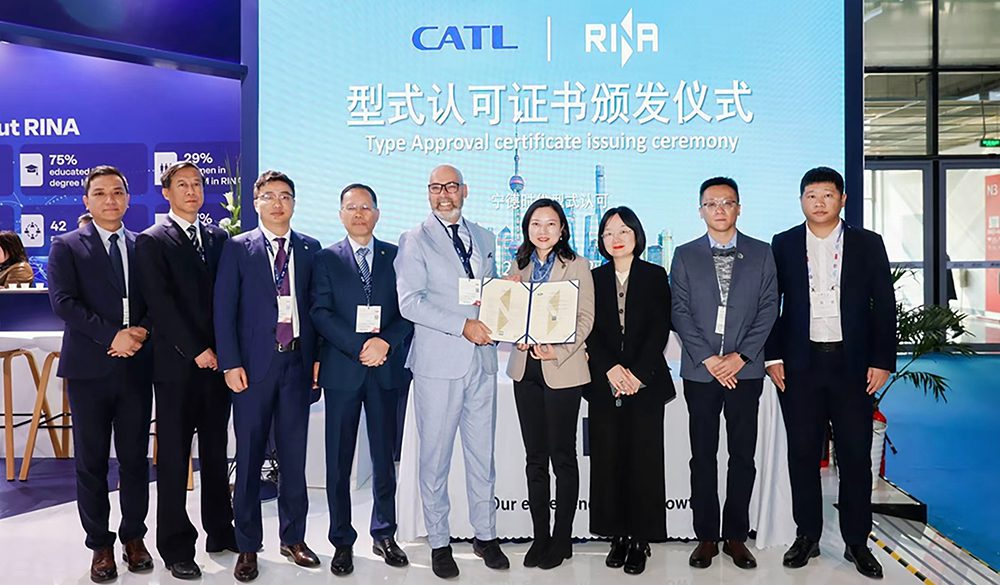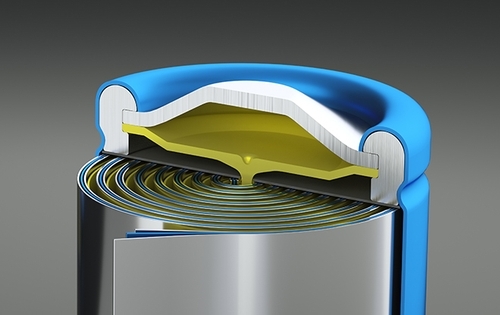Thermal conductivity is important in a wide range of EV components in optimizing thermal management. In 2021, C-Therm collaborated with ThermoAnalytics – a leading provider of modelling and simulation software – in presenting data on the significance of the potting compound’s thermal conductivity in controlling temperature of electric motors.
Innovative Canadian tech company has helped 6 of the top 10 EV developers in the world optimize thermal performance with novel transient thermal conductivity measurement.
The Challenge of Thermal Management in EVs
The design of electric vehicles presents engineers with unique thermal management challenges that have become a major focus of research and systems development within the automotive industry. Optimization of the thermal properties of the components and materials in these sub-systems is a prerequisite to avoid thermal runaway and for battery lifetime, range, efficiency, charging rate, and safety in EVs. Battery heating/cooling and electric motor cooling systems require precise understanding of the fundamental thermophysical properties (thermal conductivity) of relevant materials for accurate thermal modeling during their design phase.
EV batteries, battery enclosures, and cooling systems contain specialized materials and composites that require experimental determination of their thermal conductivity for the development of accurate FEA models and effective battery thermal management systems (BTMSs). The traditional experimental equipment and methods that are used for thermal conductivity have been found to be inadequate for thermal conductivity measurements of many of these materials.
- Composite materials are often anisotropic, exhibiting order of magnitude differences between measured thermal conductivity in the axial vs. radial orientation.
- Some composites are filled materials containing discrete particles of boron nitride or other thermally conductive materials. Often, such composites are not homogeneous, and thermal conductivity measurement methods that assume homogeneity do not produce accurate measurements.
- Testing liquids requires careful consideration of the impact of convection as an error source.
The determination of thermal conductivity for the materials used in EV BTMSs, therefore, requires a versatile instrument that can measure the thermal conductivity of solids (isotropic, anisotropic, orthotropic, and composite), liquids, and polymers.
Canadian tech company C-Therm Technologies Ltd. specializes in the development of innovative thermal conductivity test and measure equipment. The company works with leading developers of EVs and major suppliers in the automotive market, including groups such as 3M, Intel, CoolMag, Hunstman Advanced Materials, and Haydale Composites.
Hardeep Singh, Sr. Thermal Engineer at Intel, comments: “C-Therm’s Trident system allows us to not only test a relatively broader range of materials with various sensor techniques, but with the Slab utility we are able to easily test the thermal conductivity of our thin aluminum alloys.”
How Best to Test Thermal Conductivity?
In thermal conductivity measurement there is no universal method to cover all materials and applications. C-Therm’s CEO Adam Harris comments: “With thermal conductivity it is best to take a toolbox approach, having a mix of methods available to pick the best tool for the job”. C-Therm’s Trident Thermal Conductivity Instrument, launched in 2019, provides the three most prominent transient thermal conductivity methods in one platform. Trident provides researchers the necessary sampling flexibility for thermal conductivity measurements of the different materials and phases employed in EVs, offering ASTM- and ISO-compliant analytical methods. Trident can be configured with the Modified Transient Plane Source (MTPS), FLEX Transient Plane Source (TPS), or Transient Line Source (TLS) test methods to determine thermal conductivities for a wide range of solids, liquids, composites, powders, and pastes that are used or being considered for use in EV batteries and BTMSs.
Additional Resources:
Method Selection Guide
For more information on optimal method selection for thermal conductivity, readers are encouraged to consult Special Report: Method Selection in Thermal Conductivity Characterization.
Webinar – Importance of Thermal Conductivity in xEV Thermal Management Modeling
To access the recording of the Webinar C-Therm hosted with guest speaker Dr. Zachary Edel from ThermoAnalytics visit: https://ctherm.com/resources/webinars/thermoanalytics/
Case Highlight: Thermal Management in EVs – Optimize Performance with Better Thermal Conductivity Data
Submit the form below to access the free whitepaper about PHEV/BEV battery systems, EV electric motor systems, heat transfer fluids, phase change materials, and electric motor cooling, and learn how thermal conductivity measurements can provide fundamental thermophysical data for the development of efficient battery thermal management systems.




